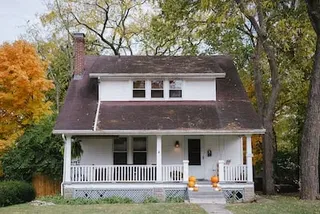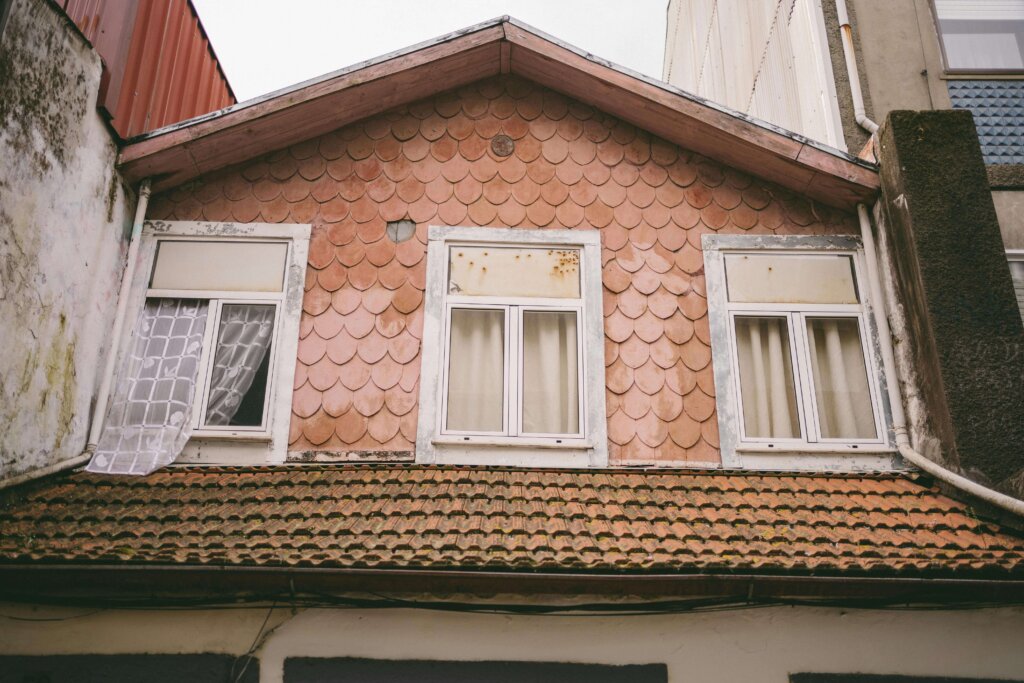Can You Sell a House With Foundation Issues?
Selling houses with a damaged foundation is legal as long as you are transparent about the problem to any potential buyers. It’s important that you show the home inspection report to anyone who puts in an offer so that they are aware of the scope of the issue.
Legal and Disclosure Requirements in Texas

In Texas, you are legally required to disclose any concerns about the structural integrity of a home, as structural damage can lead to dangerous issues.
While Texas does not require a home to be inspected before a sale, most buyers will expect this report, especially if you are in a buyer’s market.
These inspections, which must adhere to the Texas Real Estate Commission’s Real Estate Inspector Standards of Practice (SOP), will include a foundation inspection. It will also reveal other things that are equally important to the home’s safety, such as unsealed crawl spaces that may lead to further foundation damage.
A seller and their real estate agent must show this to a buyer, revealing a foundation problem and opening the way for subsequent negotiations regarding whose responsibility it is to fix the issue.
Assessing the Severity of Foundation Issues
A home’s foundation is a large and complex component of its overall safety. Most modern Texan homes have concrete slabs, which are concrete forms reinforced with rebar and poured on level ground. Older homes built before the 1960s may have pier and beam foundations, which include a buried footing, wooden piers atop the footing, and timber beams that rest on the piers.
Both of these types of foundations come with potential structural problems, including hairline cracks due to the house settling or rotting piers that may suffer severe bowing. A home with foundation problems will often show clear signs that an inspector can use to determine the type of damage and how it could be fixed.
Common Signs of Foundation Problems

Foundation problems often come with tell-tale interior and exterior signs that an inspector can use to diagnose the issue.
Minor cracks on exterior walls, especially vertical ones, may mean the house is settling. Cracks less than a quarter of an inch wide may not need repair, but any longer or rapidly growing cracks must be checked to ensure there is no major foundation damage. You should always have exterior cracks looked over.
Stair step cracks are of serious concern, as is any evidence that the basement walls or the foundation itself are bowing. A structural engineer must check these to guarantee there is no immediate danger.
Foundation problems may also show up in the interior as well. Cracks on interior walls may be signs of water damage, so you should have a qualified expert decide whether you have water intrusion or a more serious foundation issue.
Sticking doors, especially during cooler months when there’s little humidity, may show that the house is no longer level. Similarly, sloping or squeaky floors can be evidence that there is a foundation problem. If you set a marble down on the floor and it rolls downward, you need to get the home checked out for foundation problems.
Types of Foundation Damage
Texas homes are particularly susceptible to foundation problems because Texan soil is often very expansive, meaning that it expands and contracts throughout the year.
There are over 1,300 different soil types that vary in their expansiveness, so the area you live in will determine how much danger your home is in.
With so much variety amongst the soils, there are three different types of foundation problems common in the state, each requiring its own fix.
A sinking foundation means that the soil under the home is no longer steady enough to support the home’s weight and has started to sink down. The walls of the basement or foundation will begin to buckle and shift, which can bring the whole house down.
On the other hand, foundation heave means that expansive soil underneath has pushed up on the home’s foundation. This can lead to bumpy floors or triangle-shaped cracks in floors, particularly in the basement or garage.
Lateral movement occurs when the soil pushes sideways on your foundation, causing the foundation and basement walls to bow outward. You will see horizontal cracks or stair-step cracks, indicating that the foundation can no longer support weight.
Getting a Professional Inspection

Once foundation problems have been noted by an inspector, the next step is generally to contact a foundation repair company or structural engineer who can weigh in on its severity and provide options for repairs. Unfortunately, foundation repair is often a very expensive fix.
Hydraulic piers, also known as helical piers, are typically the best fix for foundation problems, but they come with a high price: they cost between $1,000 and $3,000 per pier.
How many piers you need depends on the size of the property, but must homes will need between 5 and 10 piers.
This means you could spend upwards of $30,000 repairing the foundation before you can sell the house, as buyers will typically demand you fix the problem after you disclose it with an inspection report.
Options for Selling a House with Foundation Issues
A house with foundation problems can be very tough to sell on the open market, as the typical residential buyer does not want to deal with such a serious repair.
Generally, your options are to fix the problem or to sell the house as-is to a cash buyer, who will undertake the repair process after the sale.
Option 1: Foundation Repair Before Selling

Potential buyers will expect you to deal with the repairs before you sell it, but this can cost a lot of money that you may not have on hand. On average, Texas foundation repair costs between $5,000 and $10,000 for minor repairs and between $15,000 and $25,000 for major repairs.
In some cases, you may need to pay upwards of $50,000 to fix long-term, extensive damage with the best materials.
Some repairs are only temporary fixes, such as filling in the cracks. While they are low-cost in the short term, this may mean the issues resurface before you can sell the home, meaning you’ll have to deal with the process all over again before a buyer puts in an offer.
Option 2: Selling the House “As Is”
One of the best ways to sell a home with foundation problems is to sell the house as-is, often to a cash buyer. After you disclose the problem to a buyer, they can decide whether they’re willing to take on the cost themselves after the purchase.
In return, these buyers will generally ask for a lower price on the property to compensate them for the repair requirements.
Finding the Right Buyer for a House with Foundation Issues

Selling a house with foundation problems can be challenging, especially if you aren’t willing to pay for the repairs. However, you still have options, including selling the home as-is.
In most cases, residential buyers won’t be willing to take on this risk, so your best bet is to look for a cash investor who can provide an all-cash offer for your home.
Targeting Cash Buyers and Investors
Cash buyers and investors like A-List Properties are a great option for sellers trying to get rid of a home with major structural issues.
A-List Properties and other cash-buying companies will not expect you to do any repairs; instead, we repair the home after we purchase it, providing you with upfront money.
As we don’t work with banks or realtors, we can complete a sale much faster than buyers getting a mortgage can. We will also accept homes that lenders would not finance, making it much easier to sell a house with major damage.
In many cases, we are able to complete the entire deal in 14 days or less, which is a huge relief for sellers who need urgent cash.
Financial Impact of Foundation Issues on Home Value
Because repairing foundation issues is expensive, these structural concerns will dramatically decrease a home’s value. In fact, you can expect to receive 10% to 15% less for a home with structural damage.
There is also the fact that a shaky foundation can cause other problems, such as water intrusion and cosmetic repairs, which mean even more funds spent to solve these before the typical homeowner will want to buy. All told, you will lose thousands of dollars due to the many fixes necessary to get the home in good shape.
Are Foundation Repairs a Better Solution Than Selling As-Is?

While you may wish to repair the house before you sell it in hopes of increasing its value, this will often cost more money than you would get from potential buyers. Depending on the size of the house, you could spend $30,000 or more, which can’t always be recouped with the profits from the transaction depending on your market.
These repairs take time, during which you may have to live elsewhere for your own safety. That also costs you money, because you need to keep up with home expenses like HOA dues, property taxes, and your own accommodations.
Let A-List Properties Take Care of Your Foundation Issues!
At A-List Properties, we are committed to offering the best price for a home in any condition, including those with foundation problems. We will buy your home as-is, sparing you the need to make costly repairs and manage all the headaches that come with these expensive processes.
Better yet, we can complete the entire transaction in 14 days or less because we don’t need bank financing: we finance the whole thing ourselves.
If you have a home that has serious structural concerns, our cash-for-houses program can save you not just the costs associated with traditional home sales but also additional stress.To start your journey toward the next chapter of your life, reach out to get a free quote or call us at 972-526-7042 with your address. We’ll get back to you quickly with a fair, all-cash quote that saves you the runaround with realtors and buyers.
Get a Free Online Quote From a Cash Home Buyer in Texas
This will be a Cash transaction with no agents, commissions or fees associated. All the proceeds will be left for YOU to enjoy! Let us help TODAY!

